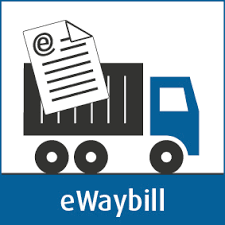- Business Startup
- Startup-Indian Entities
- Startup-Foreign Entities
- Business/Entity Conversion
- Business Registration
- Tax & ROC
- Yearly Tax Compliances
- Income Tax Return Filing
- ITR for Salaried Individuals/ Pensioner
- ITR for Capital Gain
- ITR for Companies
- ITR for House Property Income
- ITR for Income from Business
- ITR for Individuals having Share Trading
- ITR for NRIs and Resident with Foreign Income
- ITR for Partnership Firm/AOP/BOI
- ITR for Presumptive Income
- ITR for Speculation Business
- ITR for Trust, NGO and Companies
- Advisory on Tax Savings
- TDS Return Filings
- LTCG Filing and Advisory
- Income tax Notice Compliance
- Basic
- Standard
- Premium
- ITR for House Property Income and Other Source Income
- ITR for Capital Gain
- ITR for NRIs and Resident with Foreign Income
- ITR for Individuals having Share Trading or Casual Income
- ITR for Speculation Business
- ITR for Income from Business and Profession
- ITR for Presumptive Income
- ITR for Partnership Firm/AOP/BOI
- ITR for Companies
- ITR for Trust, NGO
- Advisory on Tax Savings
Yearly Tax Compliances
ITR for Salaried Individuals/ Pensioner
Income Tax Return Filing
- GST
- GST Registration (₹799)
- GST Accounting
- GST Return Filing
- GST Annual Return
- GST LUT Submission
- GST Taxpayer Registration
- GST Registration for Foreign Entity
- GST Registration Cancellation
- GST-Revocation of Cancellation
- GST Return Filing Packages
- E-way Bill Submission
- Ask an Expert-GST
GST Registration & Cancellation
- IPR
- Trademark
- Trademark Registration (₹5799)*
- Trademark (Individual) Registration
- Trademark with Logo Designers (Individual)
- Trademark with Logo Designers (Company)
- Trademark Objection Management
- Trademark Renewal
- Trademark Renewal (Company)
- MSME Compliance Trademark Registration
- Trademark Restoration
- Trademark Assignment
- Trademark Hearing
- Trademark Opposition
- Trademark Infringement
- Trademark Investigation
- Trademark Logo
- Copyright
- Copyright Registration
- Copyright Objection
- Computer Software Copyright
- Logo Copyright for Goods
- Songs Copyright
- Sound Recording Copyright
- Logo Copyright for Service
- Artistic Work/Painting Copyright
- Cinematography Copyright
- Copyright a Book
- Literature/Dramatic Copyright
- Music Notation Copyright
- Phrase/Slogan Copyright
- Symbol Copyright
- Patent
- Design
Trademark
- Trademark
- Compliance
- LLP Annual Compliance
- Winding up of Inactive LLP
- LLP Winding up by NCLT
Initial Compliance
General LLP Compliance
Changes in company
LLP Annual Compliance/ Closure
- Pay Roll
- Company
- Blog
Compliance
Get your business incorporated at the lowest price with compliance to regulatory requirements of Ministry of Corporate Affairs. Register a company today to get funding and tax benefits.
Issue of Share Certificate & Franking
Issue of Share Certificate & Franking
- Overview
- Documents Required / Details of the product
- Process
The subscribers of the MOA & AOA are the first shareholders of the company, and under section 46 of the Companies, Act company must issue share certificates to its members in the format prescribed format showing clearly the number of shares held by a specific shareholder. The share certificates must be issued within a period of 60 days of its allotment or date of incorporation in case it is a newly incorporated company. The requirement of the issue if share certificate is similar for all kinds of companies, whether it is an OPC, Small Company, any other Private Limited Company or Public Limited Company.
Section 3 of the Indian stamp act makes it mandatory for every share certificate to bear the essential stamp duty in accordance with the prevailing rate of stamp duty in the respective state or union territory. The stamp duty is payable in all cases, even if the shares are issued in dematerialized format. Please note that the stamp duty on the share certificate is payable on the issue price of the security and not on the Par/ Nominal value of shares.
Frequently Asked Questions
What are the documents which has to be prepared for payment of stamp duty on share certificate?
The documents to be prepared for the purpose of franking of the share certificate are as under, the procedure is through state-specific, however, in general, the below list would be acceptable for most of the states.
- Covering Letter on the letterhead (duly affixed Rs 10/- Court Fee Stamp).
- List of Directors of the Company
- List of Shareholders for which share certificate is issued
- Copy of the Share Certificates issues
- Certified copy of Spice Form (INC-32) with Fee Challan
- In case of subsequent allotment PAS-3 Form with Challan
- Signed copy of the MOA & AOA
- Authority letter in favour of Director / professional
Is stamp duty payable on issue of share certificate in dematerialized form?
Yes, the stamp duty is applicable for all kinds of securities, in case it shares the rates are different for different states, whereas in case of debenture the rate is same for all over India as it is covered under union list.
What is the rate of stamp duty to be paid on share certificate?
The rate on which the stamp duty is to be paid is different from state to state, and you should check the relevant state stamp act for the current stamp duty rates. To know the stamp duty payable on the share certificate
What is the value on which stamp duty is to be paid?
As per Section 21 of the Indian Stamp Act, the issue price/transaction price is the value for the payment of stamp duty and not the par or nominal value of the security. For example, in case of issue of the security is at a premium, then the stamp duty is payable on the issue price which includes par value and the premium thereon.
What is the place from where share certificate must be issued?
The companies act is silent on the point and nowhere prescribes that the share certificate must be issued from the registered address of the company, in other words, a company is free to issue securities from any other place as well. The stamp duty shall be paid in the state where from where the share certificate has been issued. Our suggestion is to hold a proper board meeting at any place and issue share certificate and pay the stamp duty based on the rate of that specific state.
What about stamp duty on duplicate share certificate or split share certificate?
The regulation 25 of the schedule I of the Indian stamp act provides that on the issue of the duplicate share certificate or issue of fresh share certificate on splitting the value of stamp duty is only Rs. 1/- [One Rupee]
What is Share Certificate Franking?
Franking of the share certificate is one among several methods by way of which the stamp duty is paid on the share certificate, and these are impressions made on the share certificate by using a Franking Machine, which is usually installed in the office of the sub-registrar or collector of stamp office of the respective stamp. Typically these machines can affix impressions of up to Rs. 999 on stamp paper.
Important Points on Issue Share Certificate & Pay Stamp Duty
-
Issue Share Certificate within 60 Days
According to the Companies Act, 2013, every person whose name is entered in the register if members as shareholder/member must be issued a share certificate within 60 days
-
Who can be appointed as Auditor
Section 139 of the Companies Act, prescribes qualification and condition for appointment of auditor, according to it the auditor must be a Qualified Chartered Accountant with valid membership of ICAI and is not ineligible for doing audit.
-
Stamp Duty Differs from State to State
The stamp duty on share certificate differs from state to state, and it has to be paid in the state where it has been issued. The registered address of the company is the usual place for the issue of shares.
-
Create Share Certificate Tool
You may use our tool to create the share certificates easily in the format as prescribed under law within minutes.
Issue of Share Certificate & Franking Registration
₹4,999.00
Issue of Share Certificate & Franking in just 10 Days
Why choose Company registration in INDIA ?
-
Shields from personal liability and protects from other risks and losses.
-
A registered company makes it genuine and increases the authenticity of your business.
-
Procures bank credits and good investment from reliable investors with ease.
-
Offers liability protection to protect your company’s assets
-
Greater capital contribution leading to greater stability of business
-
Increases the potential to grow big and expand the business


























